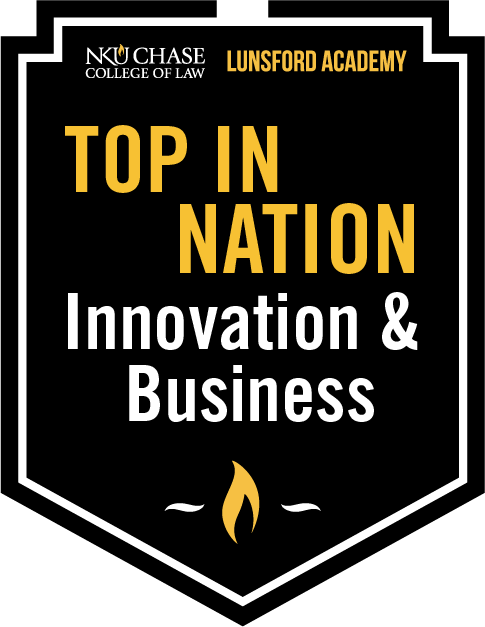A CUTTING-EDGE CURRICULUM FOR THE MODERN LAWYER


OUR CURRICULUM
The W. Bruce Lunsford Academy for Law, Business & Technology @ NKU Chase College of Law focuses on each scholar’s personal and professional development, providing them with a curated honors curriculum which emphasizes leadership, start-ups and business skills, legal technology and data privacy. In addition, scholars are provided exclusive networking opportunities designed to enhance their comprehensive legal education.
The MODERN LAWYER is proficient in the language of business
The Lunsford Academy recognizes that the modern lawyer needs a basic understanding of the tools and language of business. Entrepreneurs, business leaders, clients, and professional colleagues all use a common set of disciplines and tools to share information, evaluate risk for their clients, and ensure that they are able to advise their clients regarding the legal impact on finances.
Courses
Essential Quantitative Skills for Lawyers
In this course, students will develop a strong working knowledge of accounting concepts and mechanics allowing them to read and analyze financial statements and understand how they are relevant to the practice of law. Students will also explore important basic concepts of finance and the foundations of statistical analysis .
Business Organizations
This course provides an introduction to the law of business organizations, with primary focus on corporations, partnerships and LLCs. The course includes discussion of different forms of business organizations including the mechanics of forming different types of business organizations, selecting an entity type, corporate governance, the role of the shareholder, and mergers and acquisitions. Students will also explore securities issuances and typical capitalization structures, along with a brief introduction to securities regulatory matters. No prior background in business law or economics is assumed. This course serves as the principal gateway to further study and practice in the business law field of corporate and securities law, and is relevant both to those who would form and represent business entities as well as those who contemplate engaging in litigation involving business entities.
The MODERN LEGAL PRACTICE requires technological prowess
Modern legal practice requires a high level of proficiency with technology. Attorneys without these skills generate additional costs for law firms and clients. The Lunsford Academy instructs students in the efficient use of standard office technology in the practice of law and introduces them to legal technology products designed specifically for attorneys as well as the products that compete with lawyers.
Courses
Law Practice Technology
Students will become efficient users of standard office software typically used by lawyers in practice, such as word processing, spreadsheets, and pdf documents. In a competitive legal market, lawyers who are proficient in the use of office software will reduce costs for their employers, clients, and their own businesses.
In addition, students will learn about software and other technologies designed for legal practitioners, providing students with a better practical foundation when they enter the modern legal market.
Finally, students will become familiar with technologies that compete with the services that lawyers provide, providing the students with a better understanding of how lawyers can distinguish their services from these products to provide value for their clients.
Corporate Privacy and Security
Bitcoins, blockchains, biometrics, patents, data breaches, IOT, AI, and GDPR – the world we interact with today is built on data as much as it is on bricks. Digital bricks are more malleable than physical ones and along with the endless uses of data comes a virtually endless supply. But what are the rules of engagement in this world composed entirely of zeros and ones? What are the rights of individuals and organizations? What are the ethical implications and incentives?
This course will act as a survey of the various ways that information and law interact. In addition, this course will include a deeper dive into the universe of data management, its high-level principles, and how those can be applied in real-life situations. The ultimate goal of this course is to provide you with the necessary skills and understanding to competently respond to law and informatics issues, as well as implement and maintain a compliance regime at an organization impacted by these issues, including the contractual and regulatory issues that often arise for corporate attorneys or general practitioners.
Harnessing the POWER OF INTELLECTUAL PROPERTY
Business clients need attorneys who can advise them on maximizing their ability to generate revenue from their intellectual property.
The Lunsford Academy provides students with the skills necessary to identify strategies for effective drafting and negotiation of intellectual property licenses.
Courses
Intellectual Property & Other Intangible Assets
This course takes a transactional approach to survey the law of intellectual property rights – trademarks, patents, copyrights and trade secrets. Students will also learn about protecting other intangible rights with noncompetition agreements, publicity rights licenses, releases, and endorsement agreements.
In addition to learning about the laws that protect these rights, students will understand the fundamental elements of intangible rights and intellectual property licenses and explore the best practices for creating and protecting these rights. Students will develop skills to identify strategies for effective drafting and negotiation of transactions that involve intellectual property and other intangible rights.
IP Practicum
IP Practicum will serve as an introduction to the practical aspect of working as a trademark and copyright attorney. Specifically, we will tackle assignments like learning to file trademark and copyright applications and the accompanying nuances, enforcement activities, licensing, and a quick overview into trademark and copyright law. To do this, you will be expected to utilize the reading material and outside materials, i.e., research, investigation, etc. as needed to complete given assignments. The ultimate goal is to provide you the understanding and foundation necessary to start a trademark and copyright practice in Intellectual Property.
Fostering
CREATIVE THINKING
New lawyers are facing a changing legal marketplace. Traditional paths to practice are narrowing, competitive forces on the profession are increasing, and clients are demanding new types of services and service experiences. We train students in creative design and problem solving for their law practices. Students also develop skills that allow them to fashion creative legal solutions for their clients’ businesses, as well as, foundational skills for becoming business-competent lawyers and business leaders.
Courses
Law, Technology + Entrepreneurship
Students will learn the entrepreneurial experience firsthand to better serve tomorrow’s clients by experiencing tech entrepreneurship themselves—conceiving, designing, and building legal apps. Students will design and create a legal app in partnership with computer science students or a local software developer. Through this exercise, students will hone their abilities to educate themselves about a particular area of the law and articulate their legal knowledge to non-experts. Using technology to solve legal problems by applying the same critical thinking skills used in traditional law school courses, students will gain experience working as a team and communicating with team members and technology professionals regarding the legal and technological issues relevant to creating an app. Knowledge of software design or programming is not required for the course.
Marketing for Lawyers
Every attorney needs marketing skills. Most of the time, these lessons are learned by trial and error while in the practice of law, either as a solo or small firm practitioner or as a member of a multi-national firm or corporation. In this course, students will learn about the social, legal, ethical and technological forces on marketing decision-making and the core concepts of marketing for attorneys. They will learn how to collect, process, and analyze consumer data to make informed marketing decisions while analyzing marketing problems and provide solutions. Students will also develop marketing plans and strategies to jumpstart their careers.
Personalized Approach
Academy leadership meets with scholars one-on-one multiple times a year to help them find the best curriculum, networking, and internship opportunities for their future career -or- to help them reach their personal and professional goals. Connect with us today!


